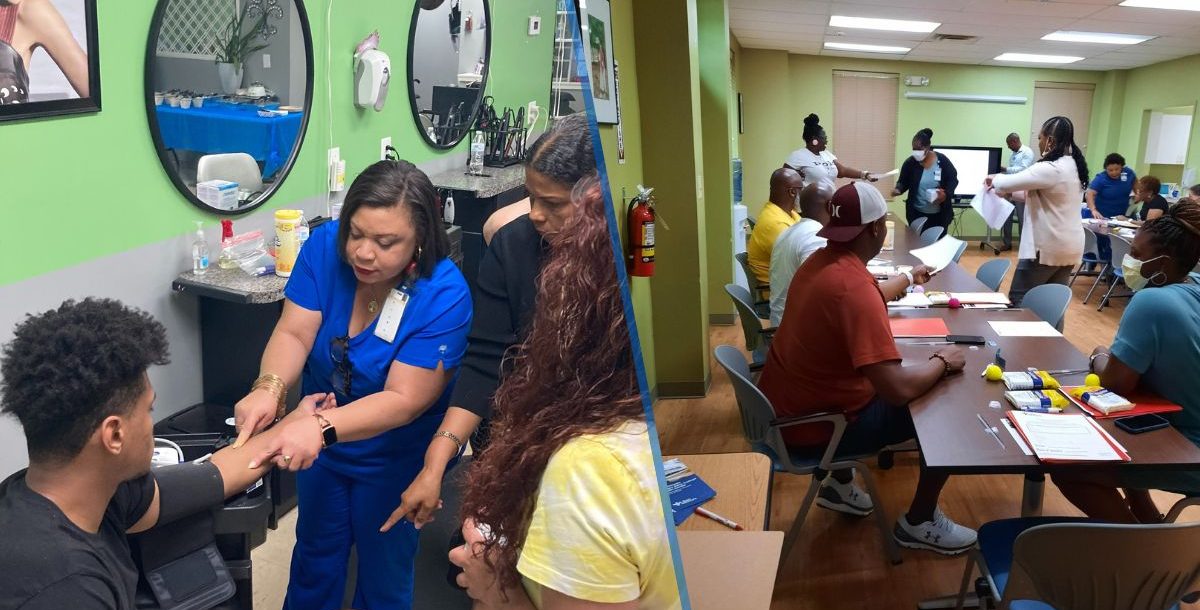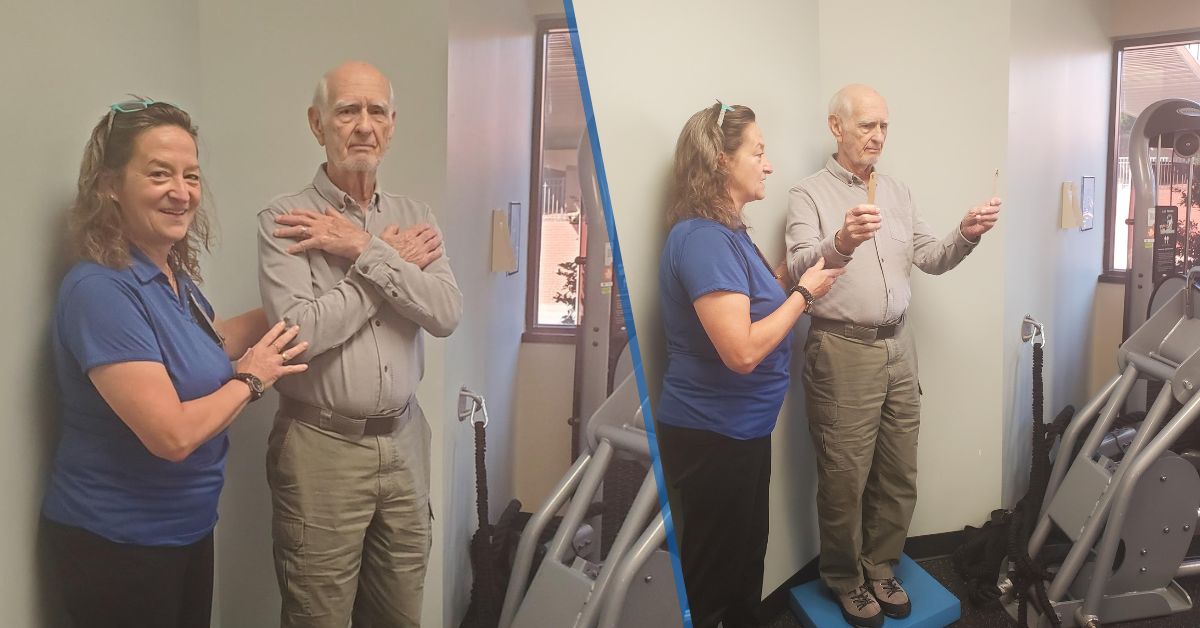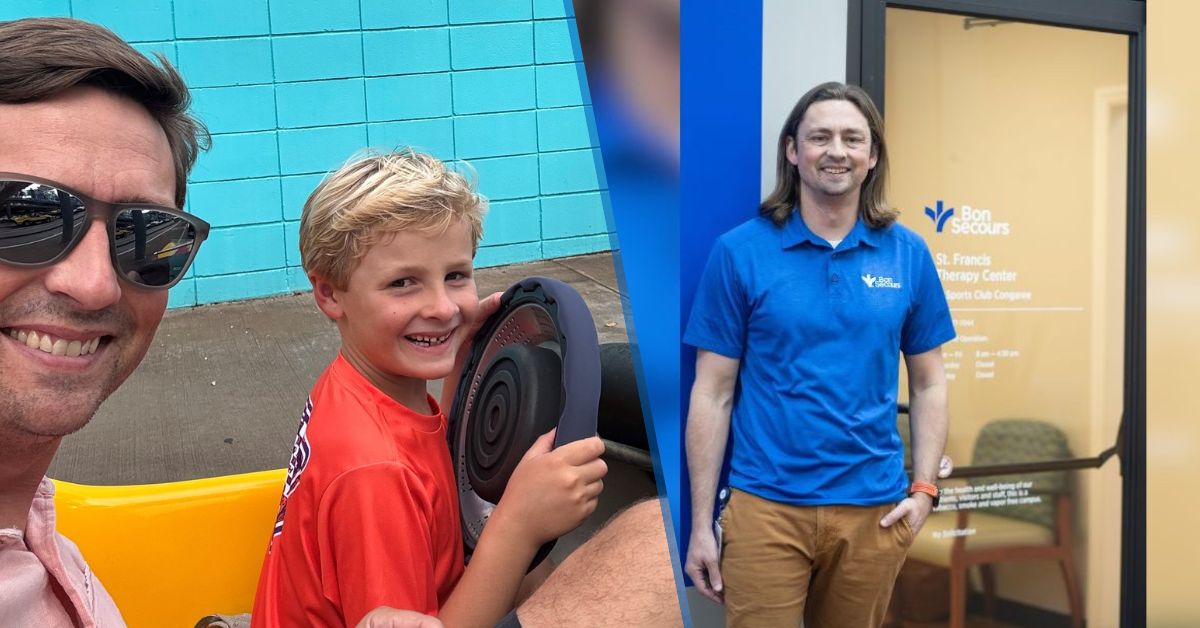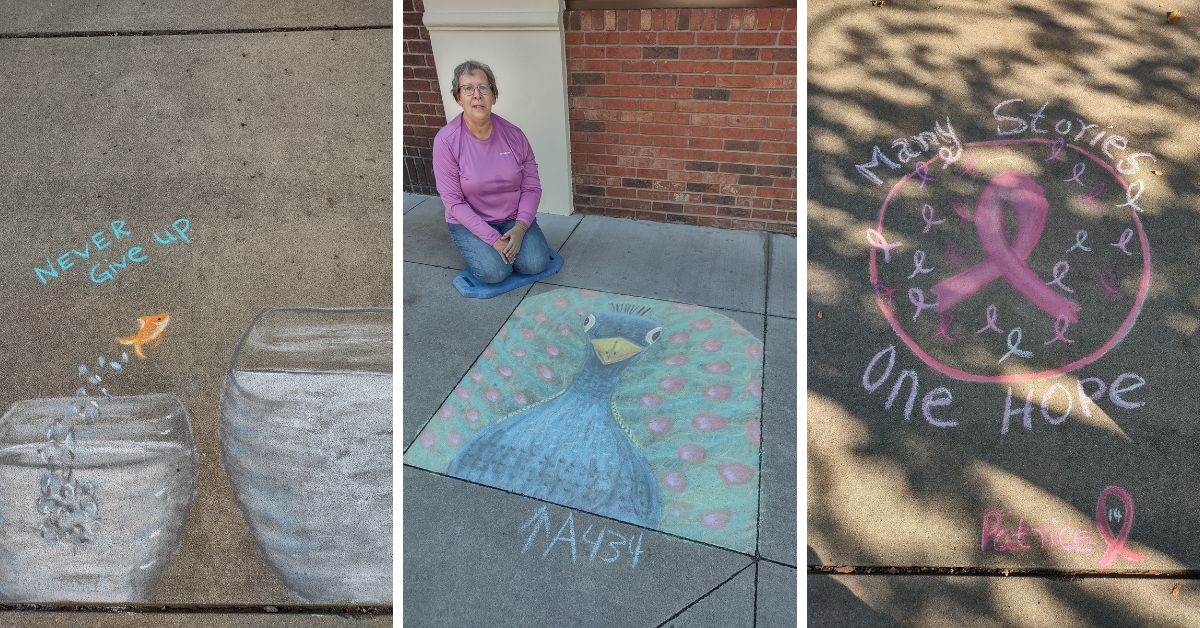At Bon Secours St. Francis, the community health and mission teams are focused on supporting and improving the health and well-being of the Greenville communities they serve.
Pastor Sean Dogan, director of community health, works with his team to identify how they can support those in their community by addressing health and social concerns outlined in the Bon Secours community health needs assessment through programs and events.
And they often partner with the mission team, led by Joe Mazzawi, on implementing these programs. Joe, who is vice president of mission, believes the partnership between his team and the community health team is guided by a shared passion for advocating for those in their community.
“When we talk about bringing good health and healing to those in our community, it means we must understand what our communities are experiencing and then deliver care in a way that meets the true needs of our community,” Joe says.
Sean and the community health team – comprised of nurses, social workers and community navigators – have most recently worked to address community needs around mental and behavioral health, access to quality care and affordable housing. Using feedback from the community health needs assessment, they have introduced and grown programs aimed at helping community members achieve health goals.
“Our goal is to create sustainable programs and build relationships with those in our communities,” Sean says. “It’s important the events and programs we offer are services that we know community members want or have told us they need.”
Partnering with local organizations to reach new community members
“We work with other local nonprofits because we know these are issues we cannot solve on our own,” Sean says. “By partnering with other local nonprofits, our team can offer services we know are needed in certain vulnerable populations.”
An example of a program they expanded is the Greenville Awareness and Community Engagement (GACE) group. GACE was initially formed following townhall meetings with Bon Secours St. Francis employees of minority backgrounds to get their perspectives on how to address inequity. One idea was to form a clergy council to advise on health topics. More than 45 faith and mission leaders are now part of GACE representing Black and Hispanic communities.
GACE pastors work with Bon Secours St. Francis staff to identify health concerns to target, develop educational campaigns or determine neighborhoods that may lack health care access so Bon Secours St. Francis can dispatch its mobile health clinics.
“We believe in relationship-building with our faith-based communities,” said Sean. “It’s important we engage these leaders to work with them on providing health education as part of their congregation or giving them an opportunity to share feedback with us.”
Some additional local outreach has included Barbershop Talk – or working with local barbers in African American and Hispanic communities. The goal is to arm these barbershops with information on important health topics, like hypertension and stroke awareness, and provide tools such as a blood pressure monitor and cuff so this information is available when clients come to their business.
The team has also partnered with Rebuild Upstate, a nonprofit dedicated to repairing the homes of low-income neighbors and preserving affordable housing options. Their goal is to help senior populations age in place – or keep their independence and stay in their own home as they get older.
Providing health education and bringing resources to the community
This year, the community health team has focused on women’s health education among African American and Hispanic populations. They partnered with mobile medical and mammography units to offer women’s health screenings, breast exams and overall wellness education.
Over four mobile events, they provided more than 100 free mammograms, 50 visits to the mobile medical units and more than 300 vision screenings to those in the community.
“It’s phenomenal when you can take these services into communities and give care to a population that doesn’t always have the same access to care,” Sean says.
They have also looked for opportunities to reach senior populations with the addition of two programs dedicated to assisting this groups: LifeWise and Matter of Balance. LifeWise was created to serve community members over the age of 55 to promote physical, emotional and spiritual wellness.
And, based on feedback they heard from seniors around a fear of falling, they increased education to caregivers about environmental considerations and introduced Matter of Balance. This program was designed to help alleviate these fears by teaching exercises to strengthen wrists and ankles.
A recent addition has been the creation of “Blessing Boxes” – boxes that are made available on a weekly basis to those who live in food deserts. The are filled with non-perishable items that residents are encouraged to take what they need to support their nutritional well-being.
Lifting up the voices of those in their community
“As a ministry, we have a responsibility to lift up the voices of those who can’t speak for themselves,” Joe says. “We have a strong commitment to supporting survivors of human trafficking and a big part of that is bringing people together and giving the opportunity for others to share their voice.”
Each year Bon Secours St. Francis hosts an annual human trafficking seminar. More than 300 attendees joined the most recent seminar, which focused on the importance of community collaboration in the effort to stop human trafficking. Additionally, Bon Secours St. Francis partnered with Jasmine Road, Christ Church and Triune Mercy Center to increase the number of beds for women in a program that provides a pathway to healing and employment for survivors of human trafficking, prostitution and addiction.
Looking ahead, the Bon Secours Greenville community health and mission teams plan to continue looking for new opportunities for outreach, events and more, based on what they hear from their communities, to help address health concerns or needs.
“We’ve seen success with many of these programs,” Sean says. “At the end of the day, it’s all about listening to how our community members are feeling and what they say they need and then providing opportunities for conversation and education.”
Learn about the community health needs assessments we conduct at Bon Secours.





